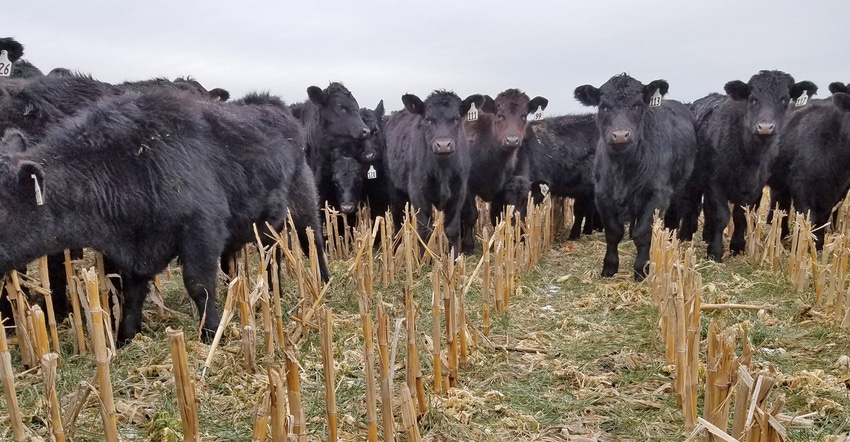August 27, 2020

This year’s 108th Kansas Livestock Association Convention will be condensed to a one-day event on Dec. 3 because spacing requirements implemented by the Hyatt and Century II Convention Center in Wichita to help stop the spread of the coronavirus make it difficult to hold the trade show or serve meals.
Committee and Council meetings will be held, along with the membership and business meeting, in a day that begins with registration at 7 a.m. and ends at 4:30 p.m. The full registration information and schedule will be provided to members when final plans are completed.
KLA members can make reservations for rooms at the Wichita Hyatt, which is the convention headquarters by calling 888-421-1442. One night’s deposit per room will be charged when the reservation is made, but the deposit will be refunded in full if it needs to be canceled for any reason.
Blocks of rooms in several nearby hotels have also been reserved. Members can call Drury Plaza Hotel Broadview at 800-325-0720 (use group number 2401538) or Fairfield Inn & Suites Downtown at 316-201-1400 or Hotel at Old Town at 316-267-4800. Be sure to tell the reservation clerk that you are with KLA to get the special convention rate.
While the virus has created a great deal of uncertainty across the state, it did not prevent KLA members from going ahead with two field days in August.
W&S Field Day
About 80 farmers and ranchers gathered at W&S Ranch near Smith Center for a KLA/Kansas State University Ranch Management Field Day focused on leveraging genetics for better profitability on Aug. 13. The ranch owners, the Weltmer family, have focused on herd genetics for 17 years. The have a cow-calf operation, feedyard, farming business and a fully licensed field mill.
They started their genetic improvement program with a transition to a timed artificial insemination program for their cowherd, a change that Philip Weltmer told the group has improved the end product.
"In 2003, our cattle were grading 60% Select and 40% Choice," he said. "Today, through improved genetic selection, better data tracking and the use of technologies, our calves are grading 100% Choice, with 60% qualifying for Certified Angus Beef."
By determining the production goal for their operation, the Weltmers were able to put forth a plan of action. Select Sires Beef Sire Analyst Jon Herrick told those in attendance this is key. Whether wanting to improve carcass merit, maternal value or something else, it is important to have a direction, he said. During his presentation, Herrick discussed the various tools available to ranchers looking for genetic progression in their herd, ranging from utilizing EPDs in bull selection to genetic testing to the use of reproductive technologies, and how to leverage them for profitability.
"One of the main things to remember when discussing changes to your breeding program is to think four to five years down the line, as that's when you will see the full impact," he said.
K-State extension beef systems specialist Justin Waggoner also was on the program. He highlighted management steps, vaccination protocols and nutrition decisions that should be considered during the post-weaning stage. Waggoner explained one of the essential transitions a calf has to make during weaning is going from mother's milk and grazed forage to a ration containing novel feeds delivered in a bunk. He said feeding both cows and calves a small amount of the ration prior to weaning, in the weaning pen or pasture, can help acclimate calves to both the feeds and the environment.
G-Three Cattle Company field day
G-Three Cattle Company of Uniontown hosted about 110 farmers and ranchers for the Aug. 18 Ranch Management Field Day. The ranch is owned by the George family and consists of a cow-calf herd, stocker operation and farming business.
The program started with a panel discussion on cover crops. K-State Extension specialist Jaymelynn Farner joined Gale George and Jared Pollock, both with G-Three on the panel. The George Family has been using cover crops as part of their winter grazing system to help reduce feed costs. Wheat, planted after corn harvest, is one of the main crops they use. Polluck said it is readily available and helps stop erosion. They also use brassicas (turnips and radishes) because they are highly productive, he said.
Farney said she recommends using only 2 pounds per mixture of brassica because forage quality is very high, ranging from 17 to 22% protein. However, the brassica has a bitter taste and cattle will seek out the wheat before grazing it.
Co-Bank Manager of Knowledge Exchange Tanner Ehmke gave a market outlook. He said he expects to see some economic growth in the third quarter, mostly from pent-up demand from consumers who have been stuck at home for months.
He added that some consumer habits developed during the pandemic, including more online purchasing, will be long-term trends and will likely have a negative effect on local economies.
Other topics of the field day included what criteria producers should consider when determining the ideal mature weight for their cowherd and resources available to help farmers managed the stress caused by the pandemic and economic conditions.
Recordings of the educational sessions from both 2020 field days are available online.
Sponsors of both events were Bayer Animal Health and the Farm Credit Associations of Kansas.
Source: Kansas Livestock Association, which is solely responsible for the information provided and is wholly owned by the source. Informa Business Media and all its subsidiaries are not responsible for any of the content contained in this information asset.
You May Also Like




